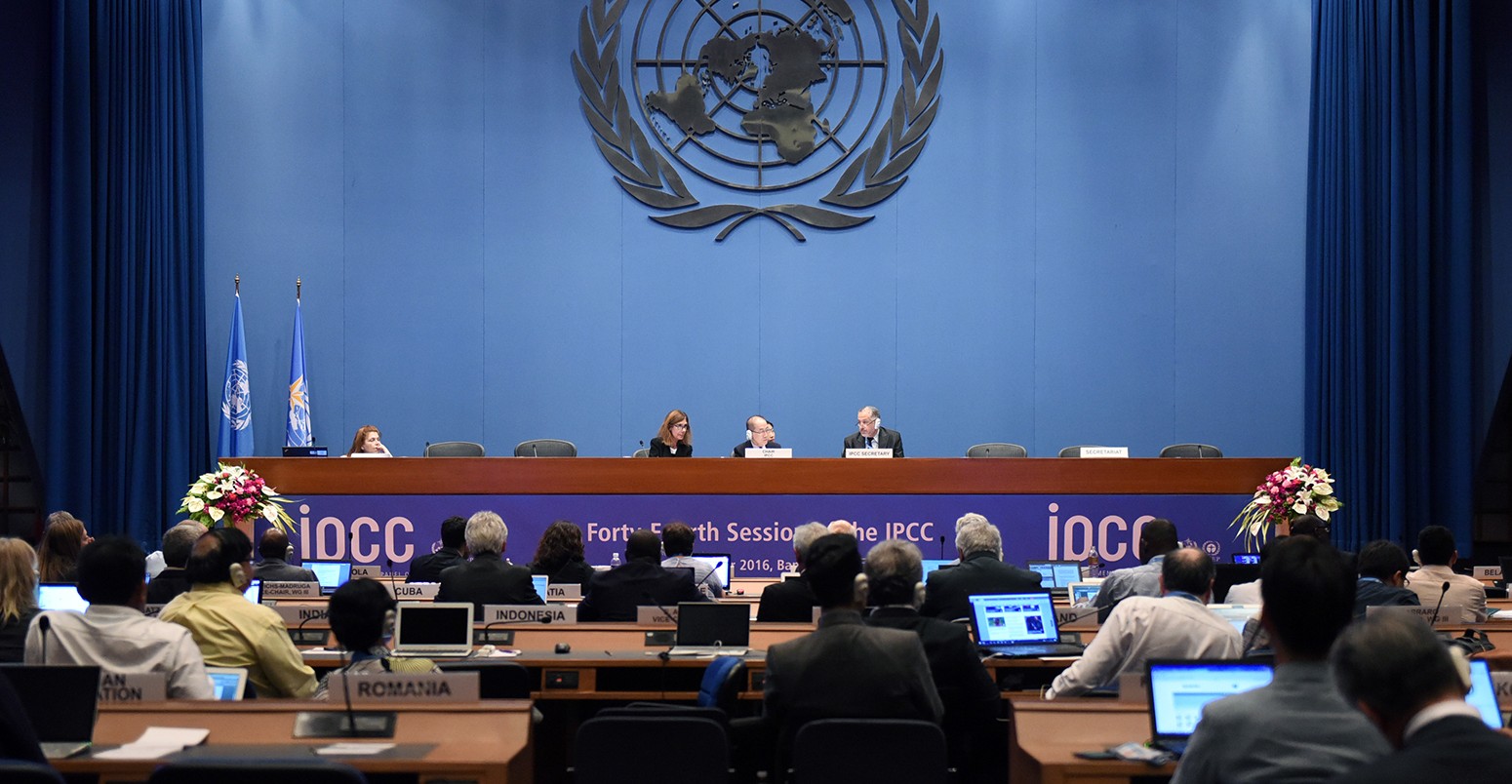
Video: Scientists on priorities for IPCC’s special report on 1.5C
Multiple Authors
10.20.16Multiple Authors
20.10.2016 | 5:06pmAt a meeting in Bangkok this week, the Intergovernmental Panel on Climate Change (IPCC) agreed the outline for its proposed special report on 1.5C.
The report was commissioned following a specific “invitation” by the UNFCCC, after language about efforts “to pursue 1.5C” made it into the final text of the Paris Agreement.
The decision rubber stamps – with some amendments – the draft outline proposed by 85 nominated experts (pdf) at an IPCC meeting (pdf) in Geneva in August this year.
At a recent conference on “1.5 degrees: Meeting the challenges of the Paris Agreement” organised by the Environmental Change Institute, Carbon Brief asked a number of delegates for their thoughts on the most important topics the 1.5C report should cover.
Below is a compilation of their responses. The video features, in order of appearance:
- Dr Stephen Cornelius – chief advisor on climate change, WWF-UK
- Dr Emily Shuckburgh – head of open oceans, British Antarctic Survey
- Prof Myles Allen – professor of geosystem science at the Environmental Change Institute, University of Oxford
- Dr Sally Brown, research fellow, University of Southampton
- Prof Michael Oppenheimer – professor of geosciences and international affairs, Princeton University
- Achim Steiner – director of the Oxford Martin School, University of Oxford
- Prof Piers Forster – director of the Priestley International Centre for Climate, University of Leeds
- Prof Saiful Islam – professor of hydrology and climate change, Bangladesh University
- Simon Bullock – senior campaigner at Friends of the Earth
Agreed outline
The outline (pdf) for the 1.5C special report agreed in Bangkok sees two changes from the one proposed in Geneva.
The first is that chapters four and five from the proposed outline have been merged into one. These chapters focus on the “global response to the threat of climate change” – in other words, looking at the current and emerging options for adaptation and mitigation.
Instead of having individual chapters on “strengthening” and “approaches to implementing” this global response, the agreed outline (pdf) will have a single chapter covering both.
Agreed outline of the #IPCC #SR1o5… #climate pic.twitter.com/aMG5GZO9hj
— Robert McSweeney (@rtmcswee) October 20, 2016
Responding to a question from Carbon Brief at a press conference, IPCC vice-chair and chair of the IPCC scientific steering committee, Dr Thelma Krug, explained the reason for the change:
Bringing the two chapters together “won’t make any difference”, says Krug, because they will have coordinating lead authors to focus on each area.
Responding to the change, Prof Piers Forster – who identified the implementation chapter as the most important in the video above – says the decision to merge the chapters “was inevitable but, to me, disappointing”. He tells Carbon Brief:
However, it is a hard chapter to write, says Forster, as it requires time, input from a lot of stakeholders, plus there is limited peer-reviewed research to draw upon:
Draft outline of 1.5C special report looks like this (shld be up on IPCC website today, we're told) #1point5 pic.twitter.com/GzxPbFjwlQ
— Roz Pidcock (@RozPidcock) September 21, 2016
The second change sees the chapter on “sustainable development, poverty eradication and reducing inequalities” cut in half – from 40 pages to 20.
This decision was made because sustainable development was “already permeating the other chapters”, explained Krug – again in response to a question from Carbon Brief:
The decision was also taken in an effort to keep the special report “succinct”, says Krug. This was echoed by IPCC chair Dr Hoesung Lee, who said the new outline had a more “sharpened focus” than before.
Overall, the amendments to the outline slims the size of the report down from an expected 267 pages to 225. One thing that hasn’t got any shorter is the full title of the report, which remains:
Finally, the timeline for the production of the report also stays as it was proposed in Geneva, says Lee:
Here's the newly agreed timetable for the @IPCC_CH special report on 1.5C #climate https://t.co/jhBUz5m1ri pic.twitter.com/9ejsGEKxtW
— Leo Hickman (@LeoHickman) October 20, 2016

